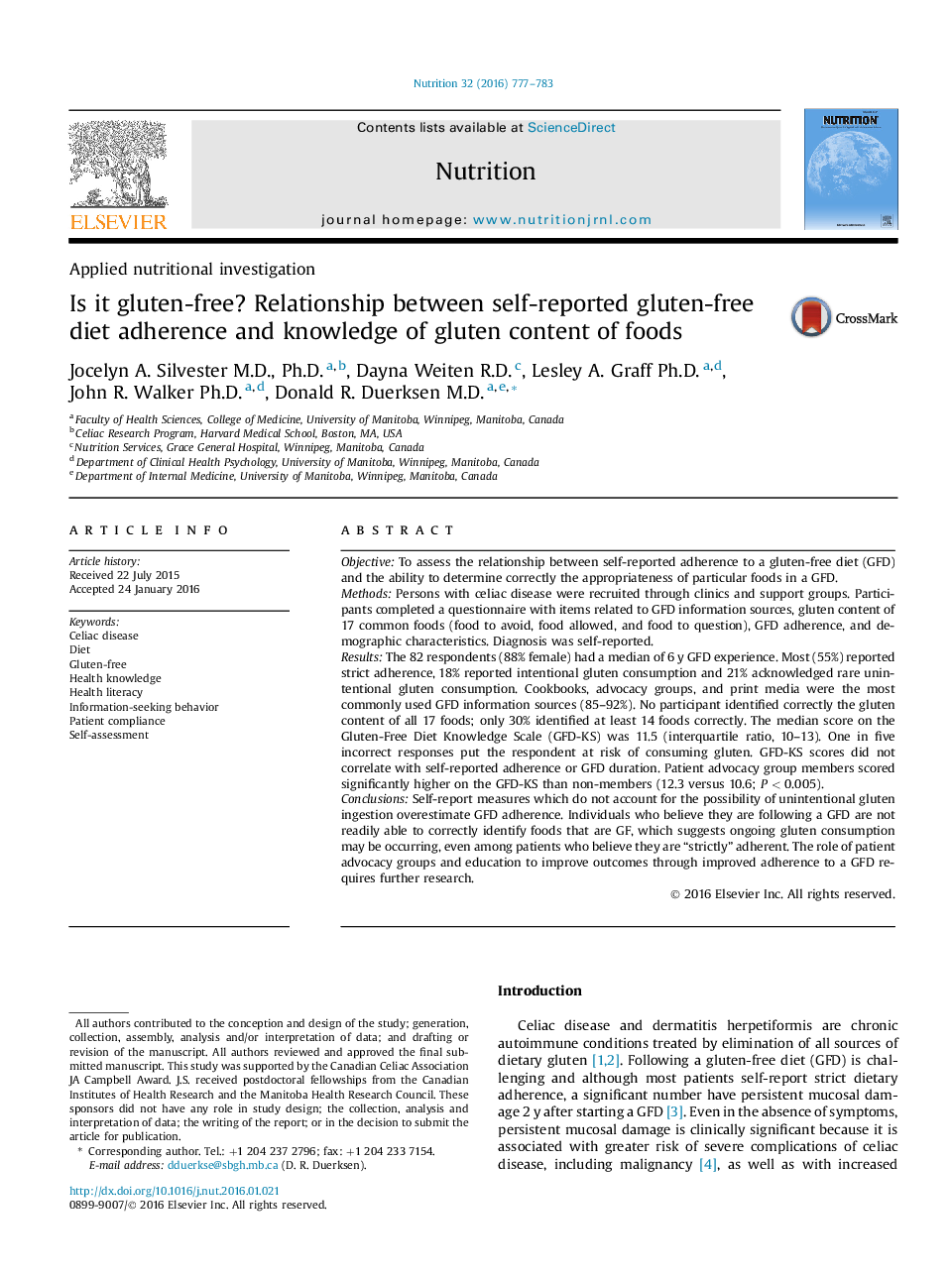| کد مقاله | کد نشریه | سال انتشار | مقاله انگلیسی | نسخه تمام متن |
|---|---|---|---|---|
| 6089106 | 1589666 | 2016 | 7 صفحه PDF | دانلود رایگان |
- Unintentional gluten ingestion is common among persons with celiac disease.
- Persons with celiac disease had difficulty determining whether foods contain gluten.
- Self-reported diet adherence did not correlate with knowledge of gluten in food.
- Misconceptions regarding gluten in food may lead to unintentional gluten exposure.
ObjectiveTo assess the relationship between self-reported adherence to a gluten-free diet (GFD) and the ability to determine correctly the appropriateness of particular foods in a GFD.MethodsPersons with celiac disease were recruited through clinics and support groups. Participants completed a questionnaire with items related to GFD information sources, gluten content of 17 common foods (food to avoid, food allowed, and food to question), GFD adherence, and demographic characteristics. Diagnosis was self-reported.ResultsThe 82 respondents (88% female) had a median of 6Â y GFD experience. Most (55%) reported strict adherence, 18% reported intentional gluten consumption and 21% acknowledged rare unintentional gluten consumption. Cookbooks, advocacy groups, and print media were the most commonly used GFD information sources (85-92%). No participant identified correctly the gluten content of all 17 foods; only 30% identified at least 14 foods correctly. The median score on the Gluten-Free Diet Knowledge Scale (GFD-KS) was 11.5 (interquartile ratio, 10-13). One in five incorrect responses put the respondent at risk of consuming gluten. GFD-KS scores did not correlate with self-reported adherence or GFD duration. Patient advocacy group members scored significantly higher on the GFD-KS than non-members (12.3 versus 10.6; PÂ <Â 0.005).ConclusionsSelf-report measures which do not account for the possibility of unintentional gluten ingestion overestimate GFD adherence. Individuals who believe they are following a GFD are not readily able to correctly identify foods that are GF, which suggests ongoing gluten consumption may be occurring, even among patients who believe they are “strictly” adherent. The role of patient advocacy groups and education to improve outcomes through improved adherence to a GFD requires further research.
Journal: Nutrition - Volume 32, Issues 7â8, JulyâAugust 2016, Pages 777-783
